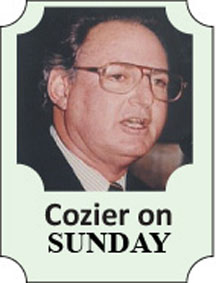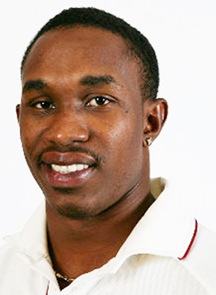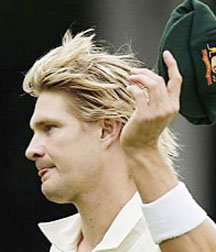They flocked to Kensington Oval in their thousands on Friday for the second of the West Indies’ Twenty20 Internationals against Australia, many with their red T-shirts proclaiming the Obama campaign slogan, “Yes We Can!”.
In recent times past, such optimism against Australia would be a sign of the continuing support of unconditional devotees but, given the recent records and the endless off-fielding distractions, misplaced all the same.
After all, the only matches the West Indies had won over the hard men from Down Under since the 2007 World Cup were a couple of Twenty20s. And they came this time as No.1 on the ICC’s ODI ranking to their hosts’ seventh.

Yet those fans sporting the Obama catchphrase had sensed a distinct difference in the West Indies this time. Even if they weren’t in St. Vincent and St. Lucia to witness the tough, exciting, drawn ODI series, the transformation was transmitted through their television screens.
They had heard and read the new deference shown by the usually uncompromising Australians. I can’t remember any of their recent predecessors eulogizing opponents as their coach Mikey Arthur and captain Shane Watson did during the ODI series.
“These guys have gone toe-to-toe with us, they haven’t taken a step backwards and they’re providing us with some stern resistance,” was how Arthur put it.
‘”They seem like a really good, tight-knit unit,” was Watson’s comment. “They’re a really impressive fielding unit. The way all the guys move around the field is pretty amazing to watch.”
Those at Kensington on Friday could appreciate what he meant. Batting and bowling are largely individual efforts; fielding reveals the collective spirit of the team.

The two Dwaynes, Bravo and Smith, and Kieron Pollard were electricity personified in patrolling the deep, almost matching the breathtaking impact of Andre Russell before the injury that put him out of the Twenty20s.
Danza Hyatt, an inexplicable choice in the first place who contributed nothing with the bat, was yet sensational in leaping this way and that to save precious runs.
Bravo acknowledged afterwards that what he correctly termed his “match-changing” direct hit run out of the dangerous David Warner, from 30 yards away at mid-wicket, was a one or two out of 10 marvel. But such moments seem to happen only to teams with confidence and self-belief, two factors Bravo identified as this team’s essential assets but conspicuously missing previously.
Now that the younger Bravo, Daren, has successfully put in the time and effort to improve that part of his game, the West Indies carry no passengers out to the middle.
Many reasons will be advanced for such a makeover but coach Ottis Gibson and captain Darren Sammy, so often and viciously maligned, can allow themselves a satisfying smile.
It is not that everything went to plan in the contests in colours. There were tactical and selection errors and the farcical run out that led to the tie at Arnos Vale (instead of the win that would have clinched the series) emphasized the general need for calm heads in pressure situations.

The lack of form of Daren Bravo, especially with the three Tests looming, was a worrying counter-balance to the good things to emerge over the last few weeks.
As he has already demonstrated in his brief international career, he is an exceptional talent and certainly a batsman on whom the West Indies will heavily rely at present and for the foreseeable future.
The coming three months, in the Caribbean and in England, present him with his first real challenge. As his brother will constantly advise him from personal experience, dealing with it is a matter of confidence and self-belief.
The continuing inconsistency of Marlon Samuels once more leaves his place in the team in doubt, although his belated contract with the Pune Warriors in the Indian Premier League (IPL) will save the selectors making an immediate decision on his status.
And it is the IPL and other such domestic Twenty20 tournaments that will continue to sap the life out of West Indies cricket unless the ICC can broker agreements that would somehow ensure that, as now, they don’t conflict with bi-lateral series and thus present players with the dreadful dilemma of choosing between their international team and the lucrative franchise contracts on offer elsewhere.
Of those engaged in the ODIs and Twenty20s against Australia, Dwayne Bravo and Pollard return for their fourth season in the IPL today. Russell, Samuels and Sunil Narine join them for the first time. Chris Gayle has already informed the West Indies Cricket Board (WICB) that, while he has signed the agreement ending their year-long standoff that kept him out of the team, he intends to see out his contract with the Bangalore franchise.
Whether or not they would have been chosen for the Aussie Tests (Narine decidedly yes, likewise Gayle, Bravo and Russell probably not, given that Sammy fills the position they would otherwise take), their absence decidedly weakens the overall squad.
Nor can young professionals be berated for accepting the lucrative contracts on offer (US$700,000 for Narine, US$450,000 for Russell in the IPL) against what the WICB can afford.
It is the first time any overseas domestic league would have had such an effect on an ICC Test team. The IPL Australians, among them captain Michael Clarke, will not join the tournament, if at all, until after the West Indies series is over. No English player has missed an international series because he has opted for Twenty20 riches elsewhere.
The extent of their contracts with their own boards and the availability of lucrative endorsements in their large, booming markets at home make the IPL appreciably less attractive than it is to their counterparts in the West Indies where the WICB’s top annual contract is for US$120,000 and where economies match the small island sizes.
For the West Indies, it was always a problem just waiting to happen. It is likely to intensify.
In the meantime, it is time for enjoying the modern rarity of matching the Australians run for run, wicket for wicket, sledge for sledge.





